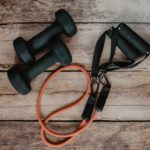Asbury students traveled to La Paz, Bolivia this summer to work in a ministry that serves women trapped in sexual exploitation. Elizabeth Bramer and Josie Deatherage interned at Project Suma, staying with a host family, attending a Spanish language school and supporting the women in local systems of trafficking. Their trip and work were completely funded by the Deese Initiative Grant.
Deatherage, an Intercultural Studies major with an emphasis in social justice, found the ministry through Elias Baker, another Asbury student whose parents started Project Suma, when she was looking for an internship.
“[Project Suma] works with women who are sexually exploited,” Deatherage explains, “whether that is in prostitution in the brothels around the city or some are involved in human trafficking. That’s an area I have had interest in for a while now.”
After taking courses on human trafficking and realizing that learning more and doing something about the issue were her next steps, she decided to pursue an internship there. “It seemed like the best fit: I knew people, I knew who ran it. That’s just how I ended up there.”
Bramer applied to the internship for a different reason–to become fluent in Spanish.
“I had this goal of being fluent before I graduated college, so obviously I needed to be uncomfortable and put myself in situations where I would be fully immersed in Spanish,” Bramer said. This internship provided a great opportunity for growth, as the interns went to language school three times a week. However, the experience reached far beyond learning more Spanish for the two students.
“With the Deese Grant, you have to pair it with an internship that would work with your major,” Bramer details. “I’m Intercultural Studies and Political Science, and so it worked really well to work with Project Suma, advocating and serving women and children affected by sexual exploitation.”
A staggering 70% of Bolivian women are survivors of sexual and/or physical assault. Project Suma’s goal is to break the cycle and offer these women healing and resources. Project Suma partners with many organizations to help these women, including Word Made Flesh, a non-profit here in Wilmore. They build relationships and meet the women where they are.
For the women that the ministry serves, Bramer says, “Project Suma has facilitated healing and restoration in their lives. The women are taking that personal healing and extending it into their communities.”
For Bramer, she worked with the administrative side of Project Suma and helped with a donor engagement report, which shares with the donors what the ministry has been able to do. Under this specific internship, Bramer collected stories from the women and children who have directly benefited from the ministry, giving her the opportunity to sit down and hear their stories. With their economic program, they ask the women what their passions and gifts are, and begin to work together to create an alternate form of income. One woman they helped was a great baker, so she was gifted a grant to start her own bakery.
“That was a really cool part: getting to sit down and to hear the way that the Lord has redeemed them,” Bramer recounts. “I have such a greater appreciation for the simple truth that God is with us. As we’re walking through the brothels, the Lord is tangibly with us.”
For a different side of the ministry, Deatherage helped run social media and create ideas, saying, “My project was a strategic communication plan. I was working with their communications team, like helping them with their social media: posting and helping with different ideas.”
The interns were also free to talk to whomever and join different programs, like the economic program. The women’s program would have workshops that taught women how to paint their nails, do their makeup or how to create a pollera, the indigenous Bolivian skirt.
A heavy aspect of Bramer and Deatherage’s internships was visiting the women in brothels.
“One of the most impactful [moments] was the first time they had taken me into an outreach visit into one of the brothels because it’s just like a whole different world in there,” Deatherage reflects. “The entire room feels very heavy. But being able to go door to door and talk to the women, saying hi and asking them how they are doing, and to look them in the eyes like they have the dignity that they’ve been given, which they don’t receive from other people very often. Being able to be apart of that and show them that kind of respect, that kind of love, I was like ‘Yeah, this is why I am doing this.’”
Serving in Project Suma has had a lasting impact, not just on the women they serve but on Deatherage and Bramer.
Photo courtesy of Unsplash.




